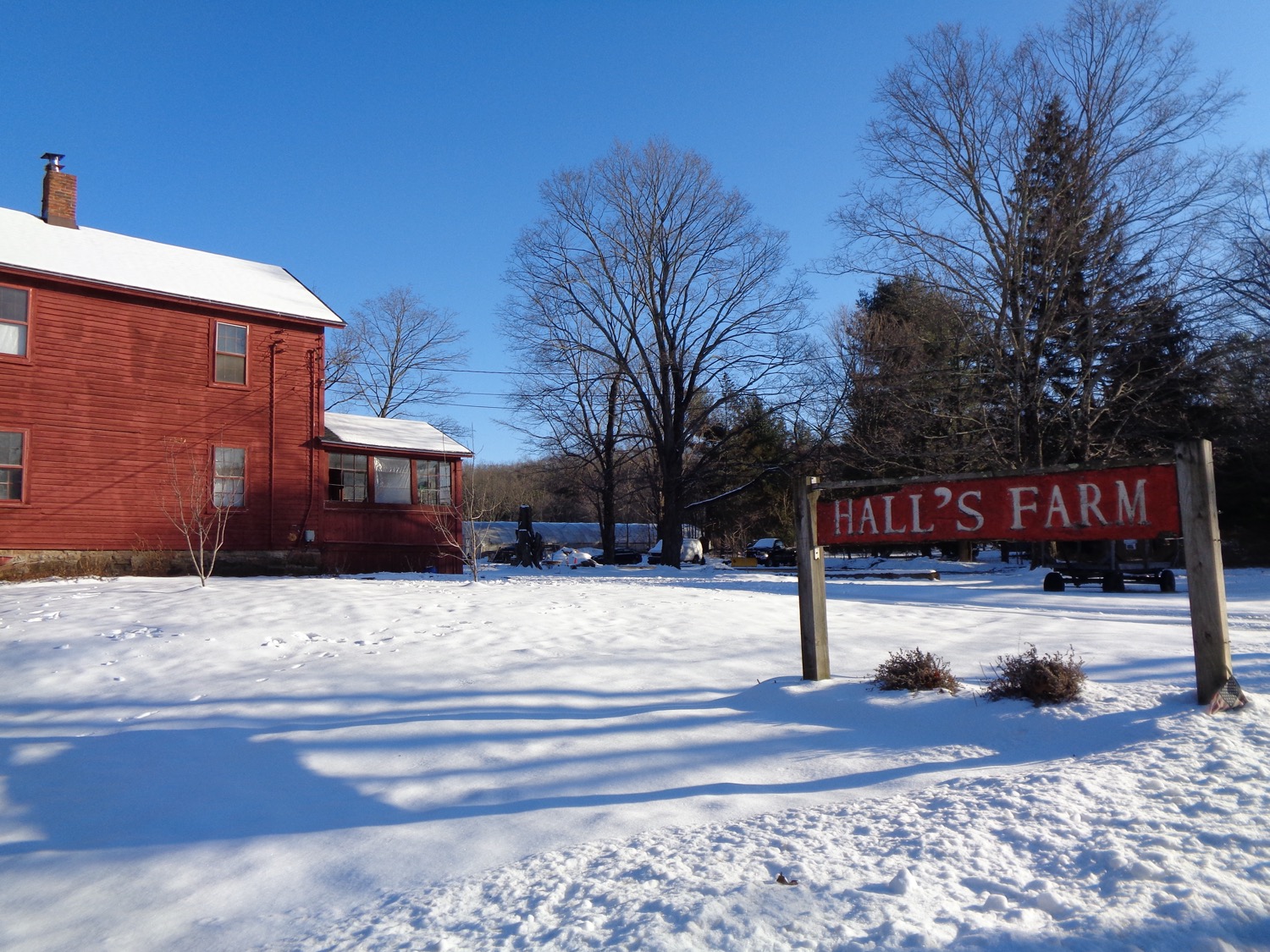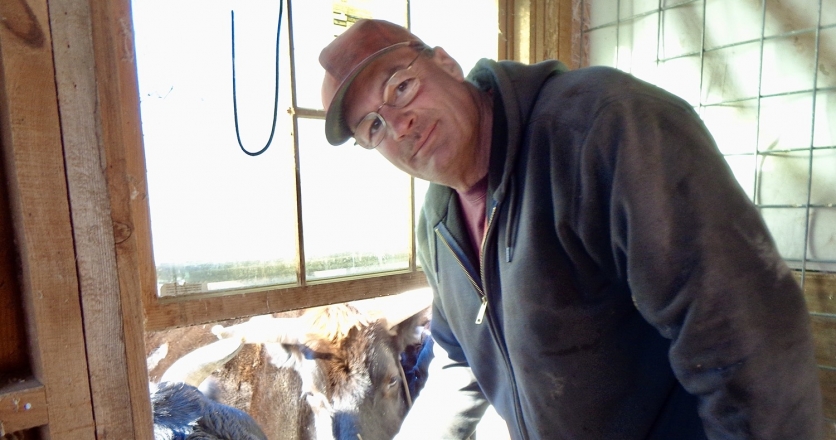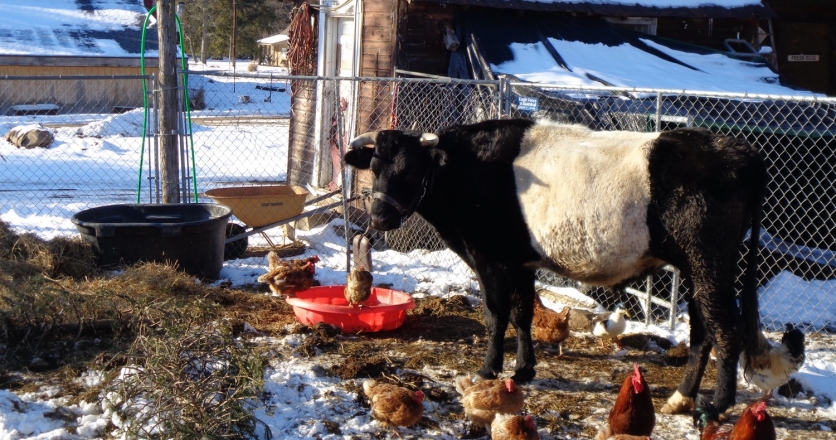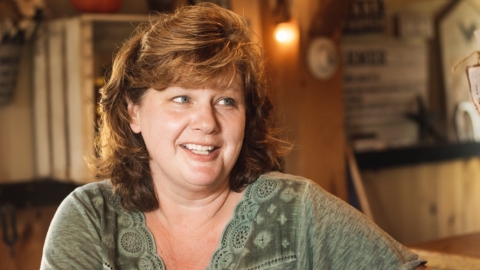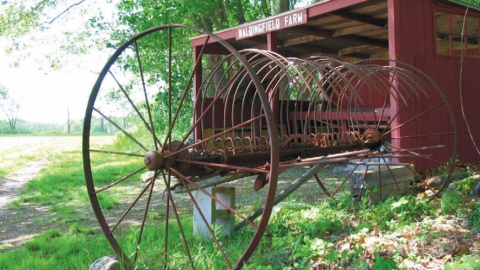Staying Competitive at George Hall Farm
When it comes to organic farming, Daren Hall of George Hall Farm in Simsbury is no newcomer. In 2014, he took the reins from the farm’s namesake, his uncle, George Hall (1927-2014), a fourth-generation farmer who founded it in 1963 on 12 acres. Eventually working 300 acres, George Hall delivered to restaurants and sold produce at the Hartford Regional Market.
George was well ahead of the huge wave of organic farming in this country. Concerned about the use of pesticides, he received organic certification in 1979 through the Northeast Organic Farming Association (NOFA), though he had to do so via NOFA Vermont, since NOFA’s Connecticut branch had not yet been established. NOFA staff believes that George Hall Farm was the first certified organic farm in Connecticut, ensuring the farm’s historic place in the back-to-the-land movement. That certification now continues through Baystate Organic Certifiers in Massachusetts.
George would invite students to stay on the farm to learn about sound agricultural practices, beginning a tradition of internships. In 2013, George received the Farmland Preservation Pathfinder Education Leader award from the American Farmland Trust. The following year, the farm entered the Simsbury Land Trust to ensure that it would remain in agricultural use in perpetuity.
These days, Daren Hall continues the work George started, and part of that work includes finding ways to stay competitive among the many local and organic producers that have sprung up since his uncle founded the farm. Each year, Hall has to assess how different crops have grown, yielded produce, and performed in the market. Being able to do this has ensured the farm’s continuous success, year in and year out, on 100 acres, part owned and part rented. With his wife, Janet, heading the business end of farm affairs, planting decisions are made from a month to two years ahead. This season, with drought conditions followed by an early frost and heavy rains, farm staff had to rush to finish the fall harvest, all while updating the greenhouse roof coverings to prepare for a December planting of tender spring crops. By contrast, last season, they had no time to plant the greenhouses, since spring weather arrived more than a month later than usual, creating a delay that forced Hall and his assistants to work overtime to complete plantings for the fall.
Adjusting to changing conditions is all part of staying competitive. Back in the early 2000s, the farm produced more than 50 different crops. These days, Hall has decided to grow fewer of what he calls “esoteric” crops in order to concentrate on more of the popular, “easy to use and recognize” vegetables and fruit, such as squash, peppers, potatoes, onions, cucumbers, tomatoes, and elderberries – “what you like best,” says Hall. His hens also produce fresh eggs for the markets. In addition, he expects to raise tobacco for cigar wrapper leaves, a Connecticut tradition dating back centuries, as well as hemp, part of a newer trend in farming. Farmers “need a little bit of everything,” Hall says. “Once you do [only] one thing, you’re subject to someone else’s rules and regulations,” increasing the financial risk. The farm uses crop rotation and seeds its plants 40 inches apart, adhering to a traditional standard which encourages ample air flow and a lower insect population.
Traditional methodologies are an essential part of the farm and are perhaps best exemplified in Hall’s two pairs of friendly oxen. Weighing up to 1,500 lbs., the black and white Dutch Belted Galloways, Sam and Eli, were raised at Bethlehem’s Abbey of Regina Laudis. He calls them his “Oreo cows.” A little larger, weighing up to 1,800 lbs., the brown pair is a Holstein Chianina mix who go by the names Moe and Curly. The oxen help to smooth out the land in the spring by pulling tires over it, after heavy tractors have left deep grooves in the muddy earth. Local celebrities, these trained oxen also move logs around, give hayrides, and host children on giant tire pulls.
In addition to Community Supported Agriculture (CSA) shares, George Hall Farm has regular spots at the New Haven Farmer’s Market, the West Hartford Farmer’s Market, and the Fairfield Farmer’s Market, where Daren Hall’s iconic (and faded) red hat is nearly as famous as his vegetables.
The writer’s parents were patrons of Hall’s original summer farm stand.
> George Hall Farm: 180 Old Farms Rd., Simsbury; 860-658-9297


